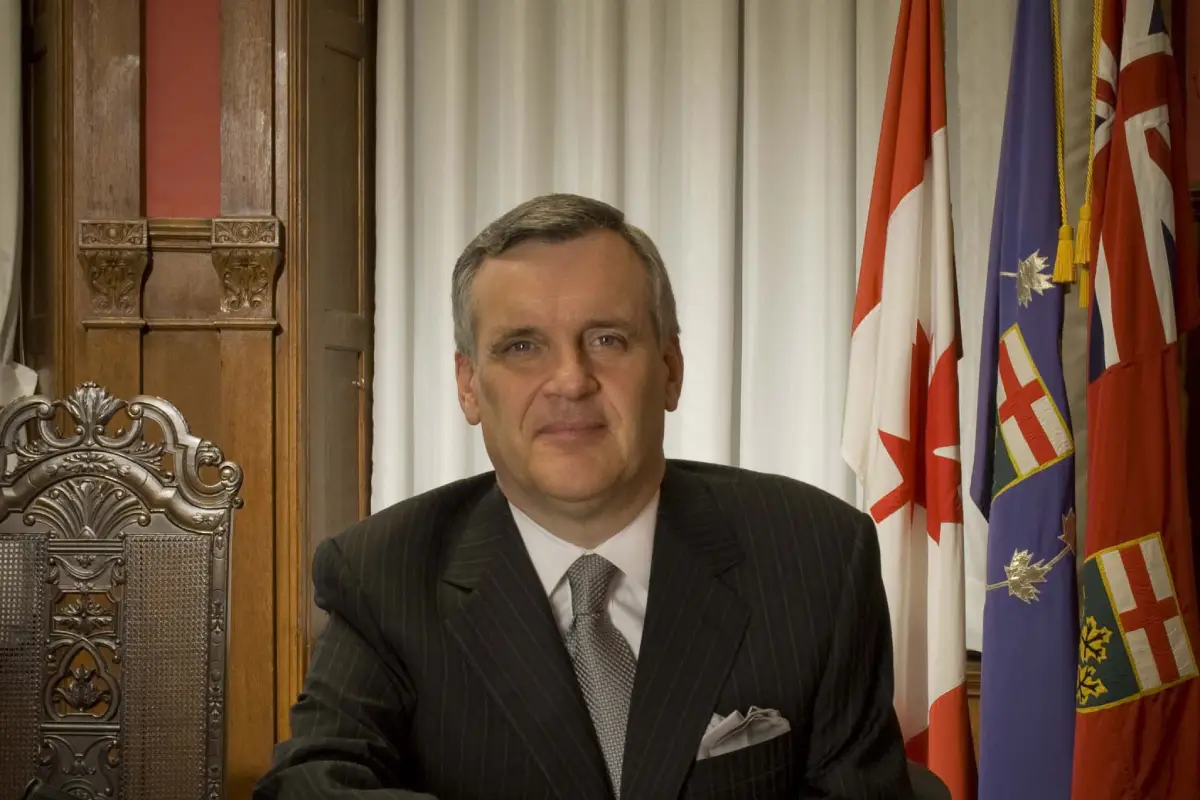When The Honourable David C. Onley took his position as Lieutenant Governor of Ontario in 2007, it was a significant moment for Canadians and especially those with disabilities. Onley was the first Lieutenant Governor to have a visible disability, and from the outset, he sought to bring more awareness to the 1.8 million Ontarians like him.
Partially paralyzed since childhood after a battle with polio, Onley wanted to dispel the myths that have made visible disabilities a social stigma and highlight the positive aspects. To help battle ableism, the attitudinal barriers of society must first be addressed. Onley was a shining example of what people with disabilities can bring to the workplace, having served first as a weather specialist and then anchor for CityTV before his appointment. Upon being appointed, all camera shots of Onley were from the waist-up, until he demanded viewers also see his wheelchair.
Onley used his mandate of overarching accessibility to extend to all Canadians, including equal access to computer literacy for Indigenous youths. He left his position in 2014, knowing there would always be more work to be done to improve the lives of people with disabilities — but no one could have predicted the COVID-19 pandemic.
In 2017, 59 per cent of Canadians living with disabilities were said to be less likely to be employed, according to a Canadian Survey on Disability Reports. When the pandemic struck, 36 per cent of that demographic either temporarily or permanently lost their positions. Many people without disabilities lost their jobs as well. Monique Gignac, co-director of the Institute for Work and Health in Ottawa, told The Canadian HRReporter that employment loss for those with disabilities was related to “a pre-existing environment that created inequities and vulnerabilities.”
One might think that remote work would have been a saving grace, but in many cases, it served to increase the stigma. As a worker’s visibility lessens, so too might the employer’s willingness to deal with any barriers they may face — to say nothing of the social isolation and lack of structure to which even non-disabled workers can suffer from.
Onley’s cause has never been more critical. In June of 2020, he offered a statement urging all Canadians to embrace a more accessible country, rather than return to a “new normal.” If social norms are truly being reorganized, it’s time to finally rid them of this stigma. Onley offered his thoughts on the state of employment for Canadians with disabilities and how businesses can improve them.
You’ve dedicated a large part of your Lieutenant Governorship to removing barriers that people with disabilities face. COVID-19 proved to be a hurdle for those with disabilities, with some employers and employment agencies unable to make contact in traditional ways. Have any improvements been made in the last few years?
That’s a very good question and on the whole, I would have to say improvements have been marginal at best. With the alleged employee shortage, one would think employers would seek out the hundreds of thousands of disabled persons who are able to work to fill the gap, but not so. I blame both the federal and provincial governments for not taking the lead by making the private sector know that there are qualified people available who just happen to have a disability.
You’ve spoken before about how hiring people with disabilities can increase productivity in the workplace. In the days of quiet quitting and a labour shortage, the unemployment rate for people with disabilities is 47 per cent, while for women it’s 65. What can businesses do?
They can choose to become fully staffed by contacting the various organizations that assist disabled people or connect with www.magnet.today. Every company that has engaged in hiring disabled persons has increased their profits, reduced absenteeism, and improved morale. All studies have verified this to be true. Not one single study has ever demonstrated otherwise.
Having served in the position of Lieutenant Governor of Ontario for seven years, what personal life lessons have you taken from the role that you’d like to pass on to others?
Service to others beyond work responsibilities is in and of itself a great reward.
In 2015, just after you left your position, a study by the Canadian government found that although youths are less likely to vote, they are more likely to be civically engaged. What do you feel accounts for that and how do you get young people involved today?
Youths are tired of the inherent cynicism played out in the political system, yet they understand the rewards of helping in their communities, something I see all the time in my role as Associate Professor in Political Science at the U of T Scarborough.
Kenny Hedges | Contributing Writer




















